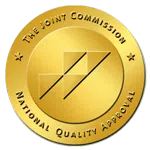
Alcohol dependency, often referred to as alcoholism or alcohol use disorder (AUD), is a complex and progressive condition that can have profound physical, psychological, and social consequences. Understanding how alcohol dependency begins is a crucial step in preventing and addressing this widespread issue. In this blog post, we’ll explore the multifaceted nature of alcohol dependency and the various factors that contribute to its onset.
Social and Cultural Factors
The influence of society and culture plays a significant role in how alcohol dependency starts. In many cultures, alcohol is a socially acceptable and even celebrated part of social gatherings and rituals. This normalization of alcohol consumption can lead individuals to experiment with drinking at a young age, sometimes even during adolescence.
Peer Pressure and Social Environment
Peer pressure is a powerful force, especially during adolescence and young adulthood. Many individuals start drinking alcohol as a result of peer pressure, wanting to fit in with their friends or social groups. This can lead to initial experimentation that, for some, evolves into a pattern of regular alcohol consumption.
Genetic Predisposition
Genetics can also play a role in alcohol dependency. Research has shown that some people may have a genetic predisposition to alcoholism. If you have a family history of alcohol dependency, your risk may be higher. However, genetics is just one piece of the puzzle, and environmental factors also play a crucial role.
Coping Mechanisms
Alcohol dependency often begins as a way to cope with life’s challenges and stressors. Many individuals turn to alcohol to self-medicate feelings of anxiety, depression, or trauma. Initially, alcohol may provide temporary relief from these emotions, leading to a reinforcing cycle of drinking to cope.
Gradual Tolerance Development
As the body becomes accustomed to the presence of alcohol, tolerance can develop. This means that over time, individuals may need to drink more to achieve the same desired effects. What might have started as a social drink occasionally can escalate into regular and heavier drinking to achieve the desired level of intoxication.
Escalation from Social to Problem Drinking
The progression from social drinking to problem drinking is often subtle. What begins as occasional alcohol consumption during social events can gradually evolve into a habit where alcohol is used to relax, escape, or cope with life’s challenges. For some, this transition occurs so gradually that they may not recognize it until dependency has already set in.
Psychological Factors
Certain psychological factors can contribute to the development of alcohol dependency. These may include a lack of healthy coping mechanisms, low self-esteem, impulsive behavior, or a history of trauma. For some individuals, alcohol becomes a way to temporarily alleviate emotional pain or discomfort.
Reinforcement Through Positive Experiences
Alcohol can produce pleasurable effects, such as relaxation, euphoria, or increased sociability. These positive experiences can reinforce the habit of drinking. Over time, individuals may begin to associate alcohol with these pleasant feelings, making it more challenging to quit.
Loss of Control
One hallmark of alcohol dependency is the loss of control over drinking. Individuals may initially intend to have only one or two drinks but find themselves unable to stop once they start. This loss of control is a clear sign that dependency has taken hold.
Physical Dependence
With continued and heavy alcohol use, physical dependence can develop. This means that the body adapts to the presence of alcohol, and when alcohol levels drop, withdrawal symptoms can occur. These symptoms can range from mild anxiety and irritability to more severe symptoms like seizures or delirium tremens.
Social Consequences
As alcohol dependency progresses, it can have significant social consequences. Relationships may deteriorate, employment may be affected, and individuals may experience legal problems, such as DUIs. These consequences can further entrench the cycle of dependency.
Denial and Stigma
Denial is a common feature of alcohol dependency. Many individuals may be in denial about the severity of their problem or may downplay the impact of their drinking on their lives. Stigma surrounding addiction can also prevent individuals from seeking help, as they fear judgment or social ostracism.
Seeking Help and Recovery
Understanding how alcohol dependency starts is a critical step in addressing the issue. It’s important to recognize that alcohol dependency is a complex condition influenced by a combination of genetic, environmental, psychological, and social factors. If you or someone you know is struggling with alcohol dependency, seeking help is essential.
Recovery is possible, and there are various treatment options available, including therapy, support groups, and medical interventions. The first step is acknowledging the problem and reaching out for assistance from healthcare professionals or addiction specialists. Breaking free from alcohol dependency is challenging, but with the right support and resources, it is achievable, leading to a healthier and more fulfilling life. Remember, you’re not alone on this journey to recovery, and there is hope for a brighter future.





Comments are closed.